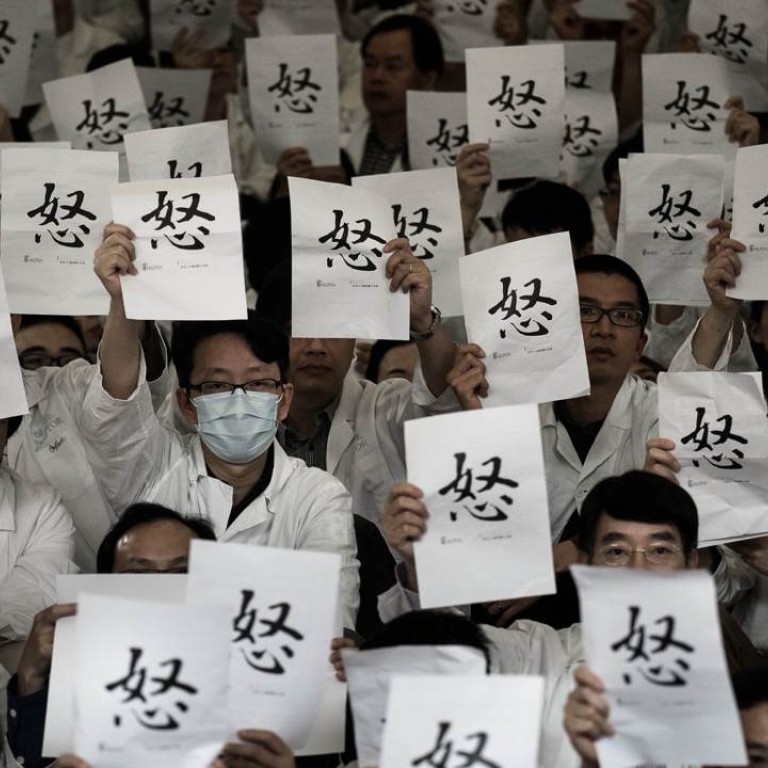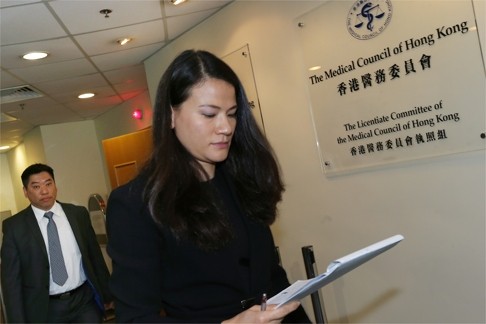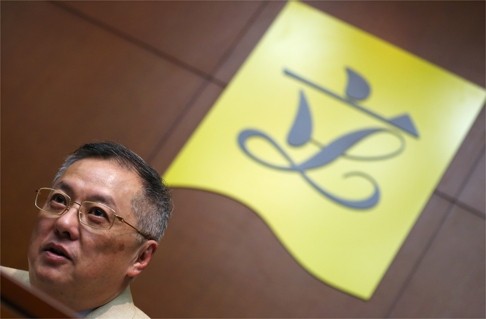
Medical Council reform needs to be part of a bigger cure for Hong Kong’s ailing health care system
Albert Cheng says legislative changes would improve the workings of the much-maligned council, but a substantial rise in funding is necessary for the public system as hospitals continue to lose doctors and nurses to the more lucrative private sector
A long-overdue bill to curb protectionism in the local medical profession is set to be introduced to the Legislative Council. However, its future remains uncertain amid strong opposition from doctors. Chief Executive Leung Chun-ying said in his policy address that the government would seek to amend the Medical Registration Ordinance to increase by four the number of lay members appointed to the Medical Council. The move is meant to improve its mechanism for investigating complaints and dealing with disciplinary inquiries.
READ MORE: At last, there is a plan to reform Hong Kong’s Medical Council
The council was founded to promote quality in the medical profession, protect patients, foster ethical conduct and maintain high standards. It keeps a register of eligible practitioners, administers the licensing exam and issues guidelines and a code of professional conduct. It also exercises regulatory and disciplinary powers for the profession, and answers general inquiries from doctors and the public.
It comprises 28 members. The director of health, Hospital Authority, Academy of Medicine, University of Hong Kong and Chinese University are each entitled to nominate two registered medical practitioners. The Medical Association can elect seven. Another seven are elected by their peers. The remaining four are lay members. The voices of patients and the general public are grossly underrepresented.

The bill is based on Liberal Party legislator Tommy Cheung Yu-yan’s proposal that four members from outside the medical sector be appointed as the first step to reform. The council will meet on February 3 for further discussions before the bill is introduced.

Dr Leung Ka-lau, who represents the medical functional constituency, insists the ratio of elected and appointed council members should remain at one to one. He suggests six appointees be added as long as the number of medical professionals is increased by the same number.
We should treasure these doctors who serve in the public sector and do not prioritise monetary returns
The matter is complicated by the pan-democrats’ filibustering of the Copyright (Amendment) Bill. Their action may bog down the bill to reform the council.
The bill itself enjoys popular support. There has been a global trend that non-medical professionals are given a bigger say in monitoring both the ethics and performance of individual physicians. This is the case in advanced countries, including the US and UK. In Britain, lay members even outnumber those from the profession in its supervisory body.
Restructuring the council is only a timid first move in reforming the whole system. It must be supplemented by a substantial increase in public spending on medical and health care services. It is vital that those dedicated to serving in government-funded hospitals remain there. We should treasure these doctors who serve in the public sector and do not prioritise monetary returns.
As public hospitals continue to lose their best talent, working conditions have become even more difficult for those who remain, creating a vicious cycle.
READ MORE: Government pledges HK$200bn developments for public hospitals
Yet, Secretary for Food and Health Ko Wing-man has left no stone unturned in slashing spending on public medical and health care facilities. As a result, private medical service providers have benefited. Medical professionals have left the public sector in droves for the private market .
The policy address unfortunately confirmed this short-sighted approach. Leung Ka-lau dismissed the plan to build more hospital facilities as just a rehash of what has already been planned for the next decade or so. He also predicted a severe shortfall of nurses.
Reform of the Medical Council seems like a fait accompli. However, substantive improvements to our medical system as a whole remain elusive.
Albert Cheng King-hon is a political commentator. [email protected]

